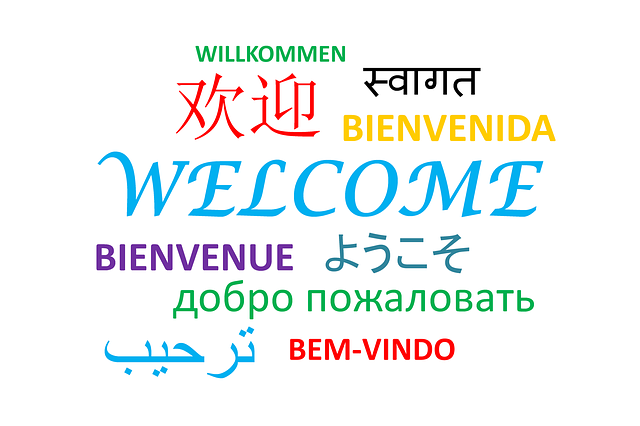Spanish
1. Word Overview
- Native phrase: ¿Tienes una cita?
- English translation: Do you have an appointment?
- Part of speech: Verb phrase + noun
- IPA pronunciation: /ˈtjɛnɛs ˈuna ˈθita/ (Spain) or /ˈtjɛnɛs ˈuna ˈsita/ (Latin America)
2. Example Sentence
Spanish: Hola, ¿tienes una cita con el doctor hoy? English: “Hello, do you have an appointment with the doctor today?” Grammar tip: Use “tienes” for informal “you.” Alternatively: ¿Tiene usted una cita? for polite/formal conversation.
3. Mini Grammar/Culture Note
In Spanish, cita (appointment) is feminine—“una cita.” Many Spanish healthcare or service settings ask it politely: ¿Tiene cita?
4. Daily Practice Challenge
Speaking practice: Ask a friend in Spanish: ¿Tienes una cita con el dentista?
Italian
1. Word Overview
- Native phrase: Hai un appuntamento?
- English translation: Do you have an appointment?
- Part of speech: Verb phrase + noun
- IPA pronunciation: /ˈhai un appuntaˈmɛnto/
2. Example Sentence
Italian: Buongiorno, hai un appuntamento con il signor Rossi? English: “Good morning, do you have an appointment with Mr. Rossi?” Grammar tip: “Hai” is informal; formal would be Ha un appuntamento? (Lei form).
3. Mini Grammar/Culture Note
Appointments (appuntamento) are masculine—“un appuntamento.” In formal interactions, Italians often drop pronouns: Ha appuntamento?
4. Daily Practice Challenge
Writing prompt: Send yourself a reminder in Italian: Ho un appuntamento alle 14:00.
Portuguese
1. Word Overview
- Native phrase: Você tem uma consulta?
- English translation: Do you have an appointment?
- Part of speech: Verb phrase + noun
- IPA pronunciation: /voˈse tẽj ˈuma kõˈsulta/
2. Example Sentence
Portuguese: Bom dia, você tem uma consulta com o médico hoje? English: “Good morning, do you have an appointment with the doctor today?” Grammar tip: Consulta is common for medical appointments. Neutral você tem is used in Brazil; in Portugal you’d hear tem uma consulta?
3. Mini Grammar/Culture Note
In Portugal, they might ask Tem consulta? dropping pronouns for brevity. Other appointment nouns: reunião (business), encontro (meeting).
4. Daily Practice Challenge
Listening activity: Record yourself asking: Você tem uma consulta hoje? aiming for clear vowel pronunciation.
German
1. Word Overview
- Native phrase: Hast du einen Termin?
- English translation: Do you have an appointment?
- Part of speech: Verb phrase + noun
- IPA pronunciation: /hast du ˈaɪ̯nən tɛɐ̯ˈmiːn/
2. Example Sentence
German: Hallo, hast du einen Termin beim Zahnarzt? English: “Hello, do you have an appointment at the dentist?” Grammar tip: einen Termin uses accusative case after “hast du.” For formal, use: Haben Sie einen Termin?
3. Mini Grammar/Culture Note
German uses specific Termin for scheduled appointments. Formal Sie and verb inversion (Haben Sie…) mark polite context.
4. Daily Practice Challenge
Speaking prompt: Practice saying: Haben Sie einen Termin heute? as if addressing a receptionist.
French
1. Word Overview
- Native phrase: As‑tu un rendez‑vous ?
- English translation: Do you have an appointment?
- Part of speech: Verb phrase + noun
- IPA pronunciation: /a.ty ɛ̃ ʁɑ̃dʁə.vu/
2. Example Sentence
French: Bonjour, as-tu un rendez-vous chez le médecin ? English: “Hello, do you have an appointment with the doctor?” Grammar tip: Rendez‑vous is masculine in French. Informal: as‑tu; formal: avez‑vous un rendez‑vous ?
3. Mini Grammar/Culture Note
In French, rendez-vous is the go-to word for scheduled meetings or appointments. In written form, you may see avez-vous in signs.
4. Daily Practice Challenge
Writing prompt: Note to self: J’ai un rendez-vous demain à 10 h.
Multilingual Bonus Comparison
| Language | Phrase | IPA Pronunciation |
|---|---|---|
| Spanish | ¿Tienes una cita? | /ˈtjɛnɛs ˈuna ˈsita/ |
| Italian | Hai un appuntamento? | /ˈhai un appuntaˈmɛnto/ |
| Portuguese | Você tem uma consulta? | /voˈse tẽj ˈuma kõˈsulta/ |
| German | Hast du einen Termin? | /hast du ˈaɪ̯nən tɛɐ̯ˈmiːn/ |
| French | As‑tu un rendez‑vous ? | /a.ty ɛ̃ ʁɑ̃dʁə.vu/ |
Final Practice Challenge
Pick two languages:
- Speak: Role-play with someone: Do you have an appointment? imagine checking in at a clinic or office.
- Write: Record a gentle reminder: Tengo una cita / Ho un appuntamento / Tenho uma consulta / Ich habe einen Termin / J’ai un rendez‑vous.

